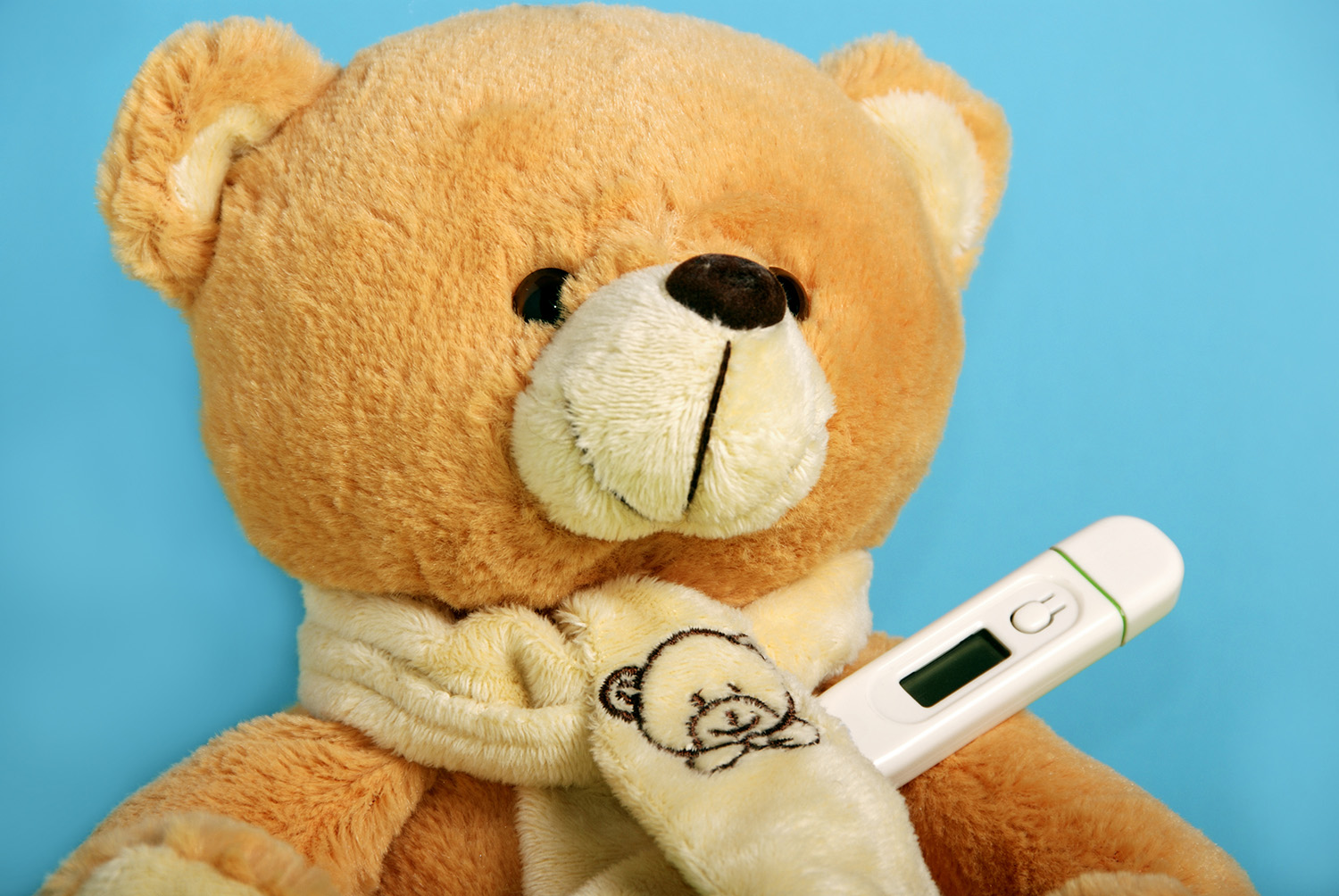Ready or Not, Hospital Here We Come!

As a parent, you might picture your child's first hospital experience in your mind. Maybe you imagine your child calmly holding still, everything goes smoothly, life is grand, and you are eating ice cream on the way home. Or maybe you picture your child crying and hiding under the chair screaming words you thought they didn't know, while you lovingly try to coax them out. Meanwhile, you want to pull your hair out and find yourself wondering if the doctor can medicate parents. Whether you feel ready or not, sometimes a hospital visit is necessary, and there are things you can do to help make it easier.
Get the Stuffed Animals to Help
The best advice I can give is to start talking to your child early. Play is such a fun and engaging way to help educate and prepare your child. If you have a play medical kit you can start working with your child to fix a boo-boo on their favorite stuffed animal. This is a great time to ask questions like, "do you think the doctors really need to give shots in your ear?" or "where do you think the nurse will put your blood pressure cuff?" This is especially good as your child may wrap it around the animal's neck. Then you can show them where it actually goes.
During play, you can also begin to figure out what you and your child will use as your way of coping. If Teddy is about to get a shot, you can ask your child, "is Teddy scared? What do you think would help Teddy feel brave?" You might need to help your child with some ideas, like holding someone's hand or taking a deep breath. Have your child help Teddy with the idea they choose, so they are now practicing for themselves. Sneaky, right?
Flashlights: Make Great X-ray Machines
If your child will be having tests at the hospital, you might need to get creative. Items around the house can turn into pretend hospital equipment. I'm famous for making the TV remote an ultrasound wand, using a big flashlight to show how an X-ray machine would move over the child and shine down to line up the picture, or for comparing a CT machine to a big donut. My thoughts often involve food!
Another big piece of helping your child get ready for the hospital is to be honest. I've had parents tell me, "Jimmy is scared of the doctor so I told him we were going to the movies and came to the hospital instead." I get the reasoning ... parents don't like upsetting their kids or having to wrestle them into the car because they're scared. But now the problem is that Jimmy may be super mad at you, doesn't trust you and doesn't want you to help him. He might also scream and not believe you the next time you say you are going to the movies to enjoy some buttery popcorn and the next big children's blockbuster!
Always keep in mind how your child processes information. A good rule of thumb is to use their age to determine how long in advance you should tell them about the hospital. If your child is one to two years old, you should talk to them about it one to two days before coming in. For kids ages five to seven, you can give them five to seven days. This gives them time to think about the information and ask questions.
Our Child Life Program is also here to help if you still have questions about helping your child get ready for a trip to the hospital.
Rushing to the emergency room?
- Grab your child's comfort item (stuffed animal/blanket).
- It's okay if your child is scared, that's normal. Tell them that the hospital is the best place for the doctors to help them get better.
- Be honest! If your child asks questions along the way, answer them to the best of your ability.
- It's okay to tell your child you don't know exactly what will happen when you get to the hospital. But you can tell them you will take it one step at a time together!
Guest Blogger: Melissa Luman, MS, CCLS, Manager, Child Life Program, UMass Memorial Children's Medical Center
Other related articles by:
child | child life | Children's Medical Center | hospital | hospitalization | infants | kids | teensNote: The content of this blog is for informational purposes only. It is not intended for use as diagnosis or treatment of a health problem or as a substitute for the professional consultation of a physician or qualified health care provider. If you have specific questions or concerns regarding a health or medical condition, contact your physician or a licensed health care professional.

